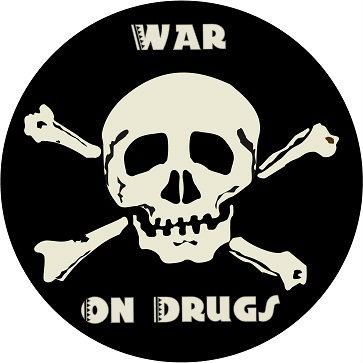Is The ‘War On Drugs’ Nearing The End?
It’s been more than 40 years since the “war on drugs” became a popular term across the United States. Yet, arguably, the U.S. has taken a combative approach to drug use for much longer than that, beginning with the passing of the Harrison Act in 1914. This war on drugs has involved the total prohibition of many drugs, and the criminalization of drug use and addiction. However, there have been signs in the last several years that the prohibition-and-penalty approach to curbing drug use is starting to fall out of favor.
The Harrison Act
 The Harrison Narcotics Tax Act of 1914 made it illegal to sell opiates or cocaine without a license. On the surface, the new law appeared to be about the moderate regulation and taxation of narcotics, rather than about outlawing them. However, the effect was to make it impossible to legally obtain cocaine or opiates. From this time on, drug users were forced to obtain their substance of choice on the black market.
The Harrison Narcotics Tax Act of 1914 made it illegal to sell opiates or cocaine without a license. On the surface, the new law appeared to be about the moderate regulation and taxation of narcotics, rather than about outlawing them. However, the effect was to make it impossible to legally obtain cocaine or opiates. From this time on, drug users were forced to obtain their substance of choice on the black market.
In theory, the language of the Harrison Act permitted doctors to prescribe narcotics. However, they were only permitted to prescribed narcotics “in the course of [their] professional practice,” which meant that they could only prescribe them to patients for treatment purposes. This language became key, because addiction was not seen as a disease at this time. As a result, prescribing narcotics to an addict was seen as illegal, because such a person was not ill.
Various other prohibition laws were passed in the succeeding years regulating substances like stimulants, steroids, hallucinogens and depressants. In 1970, all of these various laws were consolidated into a single piece of legislation that classified all legally controlled substances into various categories: the Comprehensive Drug Abuse Prevention and Control Act.
The Height Of The ‘War On Drugs’
When he created the Drug Enforcement Administration (DEA) in 1973, Richard Nixon declared “an all-out global war on the drug menace.” The phrase “war on drugs” caught on around the country and around the world as a result of this reference.
Heroin use increased rapidly in the 1960s and ’70s during the war in Vietnam, and public outcry against the drug became intense. Public pressure to curb illegal drug use, especially heroin, was at its height. There was a great deal of pressure on the government to do something to reduce drug use and the crime that was often associated with it.
The rise of the war on drugs was more than just the spreading of a catchy phrase. It marked a change in U.S. domestic policy away from treating addicts as patients and trying to solve the “root causes” of crime (such as poverty, racism, etc.) and toward a punitive approach to drug use that treated addicts as criminals. The Nixon Administration was one of the last presidential administrations to spend more money on the treatment and prevention of drug use than on the prosecution and incarceration of drug users.
In 1986, President Reagan signed the Anti-Drug Abuse Act, which created 29 mandatory minimum sentences for drug-related offenses. The percentage of the U.S. population in prison had hovered between 1 percent and2 percent since 1920, but jumped up to 8 percent between 1980 and 2008.
Signs Of A Shift In Drug Policy
Over the last two decades in particular, more and more prominent people and organizations have condemned the war approach to drug use as ineffective, expensive and unjustly punitive. Lately there have been signs that state and national policies are starting to concede to this viewpoint.
Two clear examples are the recent votes to legalize recreational marijuana in Colorado and Washington. Legal sales have begun in Colorado, and should begin in Washington by the end of 2014. Although marijuana remains a Schedule 1 controlled substance under federal law, the federal government has decided not to challenge marijuana sales in these two states. Furthermore, marijuana legalization is scheduled to appear on more state and city ballots around the country in upcoming elections.
Meanwhile, legislation on the federal level is starting to reduce the number of people in prison for drug offences. Many people hit by mandatory minimums or other harsh sentences have had their time in prison reduced by the current administration, and the United States Sentencing Commission is working to reduce even more sentences.
So far, these are relatively modest changes to the national drug policy. Nevertheless, critics of the war on drugs are encouraged by these signs that the prohibition and punishment approach that has dominated the way the U.S. combats drug abuse may finally be falling out of favor.



